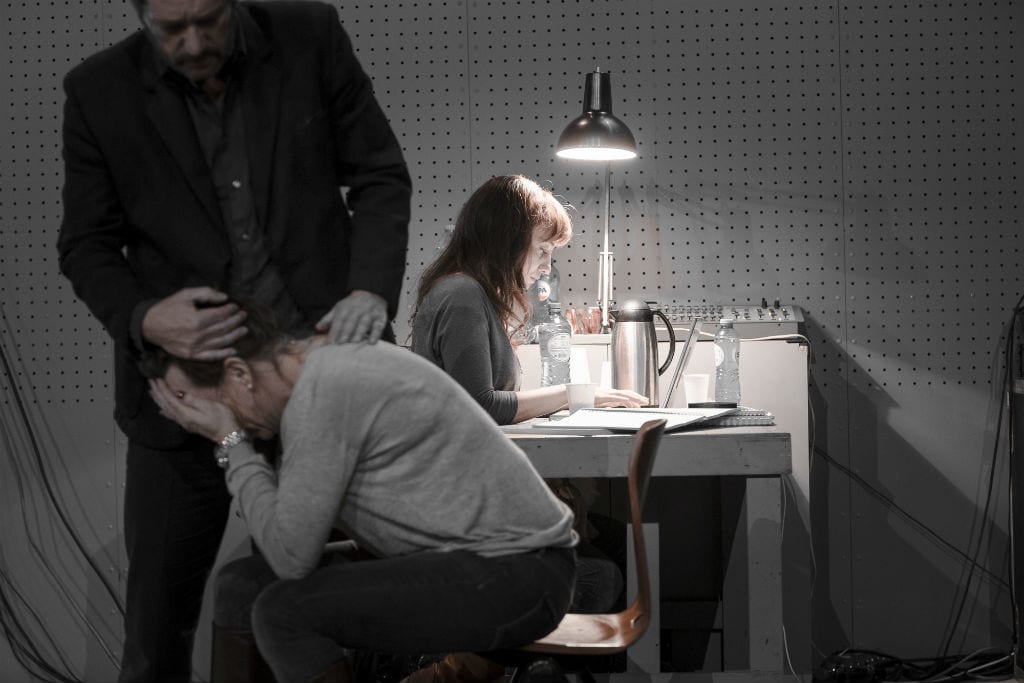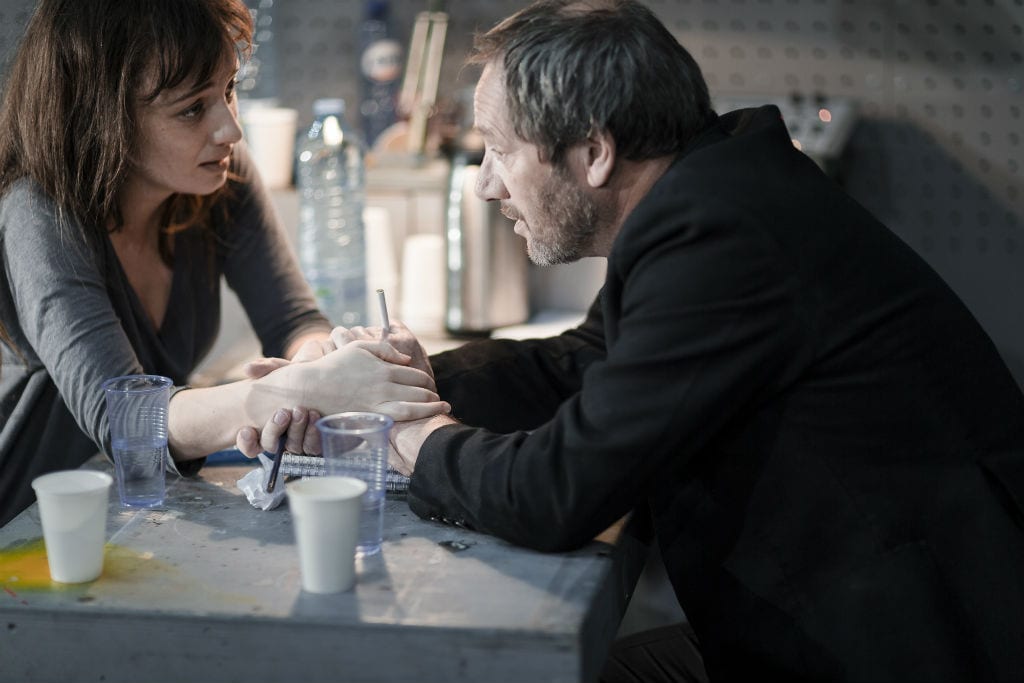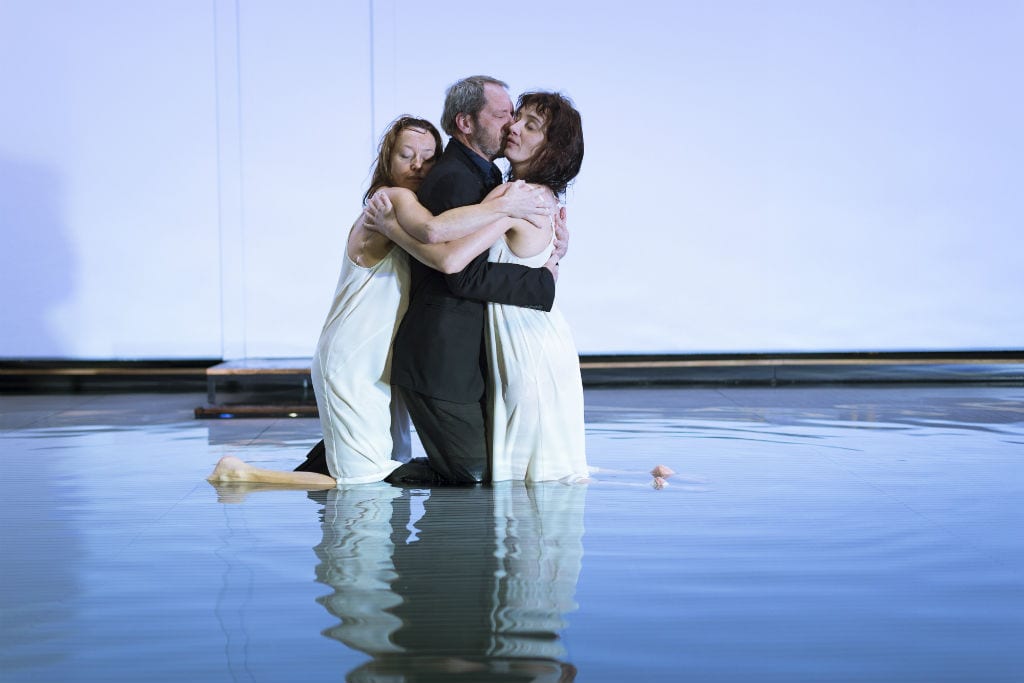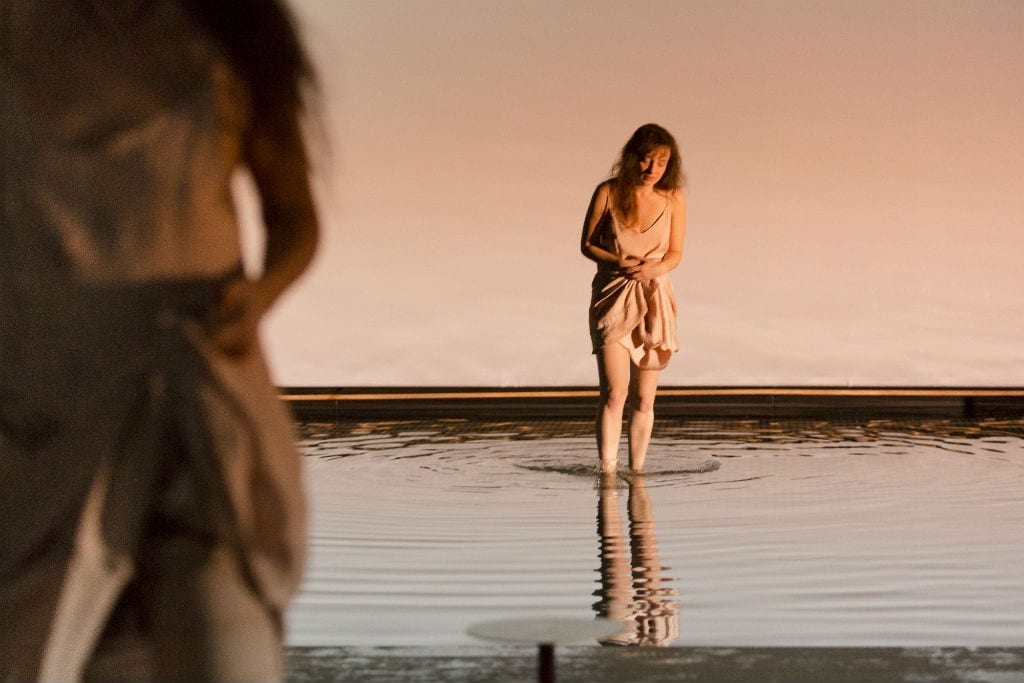Remember that scene in Woody Allen’s time-travel comedy Midnight in Paris where the hero encounters Luis Buñuel, and pitches him what will become the plot for El ángel exterminador: a group of people having a formal dinner find they can’t leave the room afterwards, and soon revert to primal savagery to stay alive? The great surrealist is perplexed – but why don’t they just leave?
That of course is relatively recent Woody Allen, a far cry from the Bergman-influenced 1980s films like September and Interiors which are only for the most fanatical Woodyites. Here we have another Bergman fan, director Ivo van Hove along with the ensemble he leads, Toneelgroep Amsterdam, with adaptations of a couple of Bergman films, After the Rehearsal and Persona. Van Hove came to prominence in London with his remarkable take on View from the Bridge, though it’s fair to say that nothing he has done since then has attracted quite the same level of praise, both Antigone and Hedda Gabbler receiving mixed reviews. The latter in particular was criticised for the fact that updating it may have suited his directorial style but made a nonsense of the story – put Hedda in the present and you remove the unbearable situation she’s confined in, making her seem nothing more than a destructive, spoilt child.
These two Bergman films are not so well known, so van Hove’s versions have to stand or fall on their own merits. The first sees an egomaniacal director with an impressionable young actress staying after the rehearsal to discuss the play, with all the alarm bells that sounds. Sure enough he makes a move on her, which she perhaps unwittingly sabotages by innocently asking whether he and her father are about the same age? She also asks whether he once slept with her mother, and when a demoralised older woman arrives, reproaching the director for how he once treated her, this might be either her mother or just a glimpse of her own possible future once he is tired of her and a new young actress catches his eye.
The synopsis in the programme claims it is her mother, in fact just a vision of her as she is now dead, though this is far from clear at the time. This may in part be due to problems with the surtitles, which aren’t always in sync with the action, sometimes leaving non-Dutch speakers uncertain as to who said what. All we know is that the young actress seems to ignore their argument, as if it’s merely a rehearsal of a scene she’s not involved in, so she spends the time going over her own lines. This ties in with one of the themes of the piece – how much are we acting a part even in our “real” lives, emphasised nicely by having a performing area that mimics the shape of a cinema screen.
Things improve dramatically (in both senses) after the interval, as set and lighting designer Jan Versweyveld is given his head and allowed to create some strikingly beautiful stage pictures, some resembling a Bill Viola video piece in their use of water. Here we have an actress, with the same surname as the director in the first piece, who finds she can’t play the role expected of her by society and retreats into silence. The younger actress is this time a nurse who, given the lack of a cure for what may not even be a disease, simply agrees to live with her on a remote island, the great listener forced to become a great talker since the only alternative is endless silence.
This is by the far the more involving of the two pieces, emotional where the first could be rather flat and overblown, though leavened with moments of humour. Yes it’s Nordic-gloomy, to the extent that a radio playing the song Happiness was enough to raise a laugh, and undeniably a long evening – I wasn’t at all surprised that the late summer evening I arrived in seemed to have given way to another season altogether by the time I left. But it’s a bold and innovative production, and London should consider itself lucky to have the Barbican playing host to cutting edge theatre like this from around the world.




